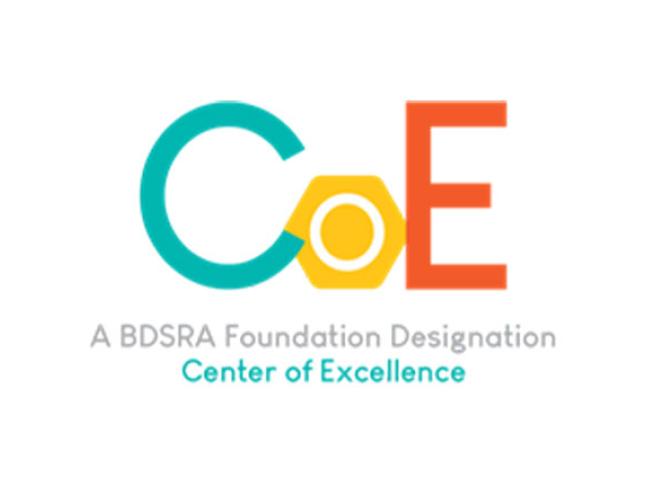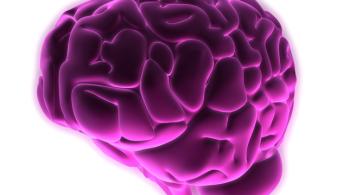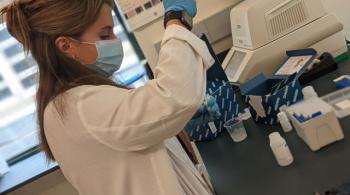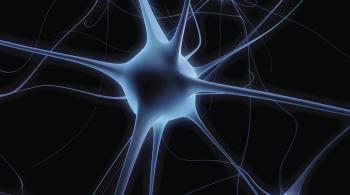The Batten Disease Clinic at Kennedy Krieger Institute focuses on diagnosing and treating people with Batten disease.
Who We Are
Batten diseases affect the nervous system and functioning of the brain. They are rare, inherited diseases that worsen over time, and typically begin in childhood. Batten diseases cause the body’s cells—mostly its brain cells—to lose the ability to dispose of cellular waste products. As the waste products build up, the cells can’t function, and the cells start to die. Batten diseases are also known as a group of disorders called neuronal ceroid lipofuscinoses, or NCLs, which come in many forms, labeled CLN1 through CLN14.
The Batten Disease Clinic at Kennedy Krieger Institute is a comprehensive clinical program focused on diagnosing and treating people with Batten disease. We provide comprehensive medical evaluations, clinical care and genetic testing. In addition to our expertise in these very rare diseases, our vast resources mean that our patients’ needs can be met at one location. It is our goal to help our patients and their families gain a better understanding of their condition and access appropriate medical care to improve their overall health and quality of life.
Who We Serve
Kennedy Krieger provides expert diagnosis and treatment for children, adolescents and adults with Batten disease. We provide one-time evaluations for diagnostic and management purposes as well as long-term treatment and care. Batten diseases can cause a variety of symptoms, which our team can manage and address, including:
- Seizures
- Speech delays
- Unsteady walking
- Loss of motor skills and the ability to walk, talk and communicate
- Cognitive decline
- Visual impairment/blindness
- Involuntary movements of the muscles
- Dementia
- Personality and behavior changes
Our Team
Kennedy Krieger is home to a unique collaboration of experts in neurological disorders, including Batten diseases, from various disciplines. Our clinicians, research scientists and rehabilitation professionals work together to provide optimal interdisciplinary care for patients. Because Batten diseases can affect many different systems in the body, treating a patient with Batten disease often requires the collaboration of a wide range of medical specialists. Key specialists who see our patients include those in the following fields:
- Neurology
- Physical therapy
- Social work
- Neuropsychology
- Genetic counseling
- Nursing
- Palliative care
- Psychiatry
In addition, we work collaboratively with the ophthalmology specialists at The Johns Hopkins Hospital.
Our Approach
Evaluation and Diagnosis
Currently, most diagnoses of Batten disease are made by genetic testing. Clinical genetic testing for Batten disease is available through DNA analysis to confirm the presence of a mutated gene that causes a form of the disease.
Treatment
There is no specific treatment that can reverse the symptoms of any form of Batten disease. In 2017, the Food and Drug Administration approved an enzyme replacement therapy for the CLN2 form of the disease (TPP1 deficiency). This therapy has been shown to slow or halt the progression of symptoms. There are no treatments that can slow or stop disease progression for other forms of the disease. Instead, treatments are used to manage specific symptoms in each individual. Early intervention with anti-seizure medications to reduce or control seizures, physical and occupational therapy to help those with Batten disease retain functioning as long as possible, and other medications to treat anxiety, depression and other challenges are also available.
Our Research Initiatives
Our laboratory and clinical research programs play an important role in treating patients with Batten disease. We are dedicated to finding and developing new treatments for this condition. We lead natural history studies and collaborate with other centers around the country to conduct clinical research in Batten diseases.
Resources

Kennedy Krieger to Lead National Batten Disease Clinical Research Consortium
Kennedy Krieger has been awarded an $8.17 million grant from the National Institutes of Health to establish and lead a first-of-its-kind network in the U.S. dedicated to advancing treatments for Batten diseases, a group of rare pediatric neurodegenerative disorders.

Center of Excellence for Batten Disease Treatment and Research
Kennedy Krieger Institute has been named a Center of Excellence by the Batten Disease Support, Research, & Advocacy Foundation, (BDSRA) for its clinical care, support and research of Batten disease. The Institute is one of five centers in the United States to receive this honor.







